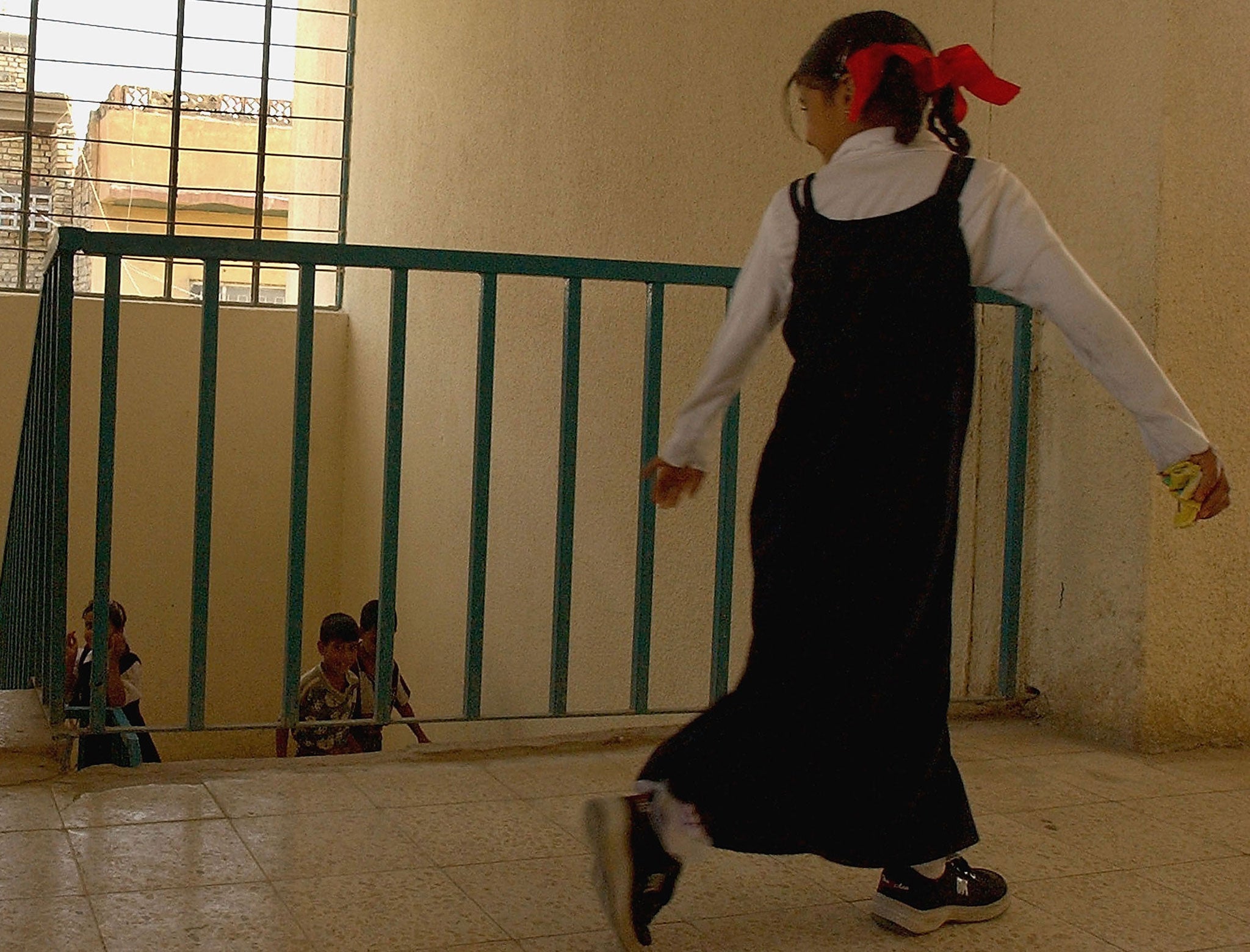Meet ‘cultural norm’, he kills girls: The tragedy of child brides
The UN expresses concern about maternal mortality among children, but few member states are willing to confront the issue

This week a court in Birmingham heard the case of a 14-year-old girl who became pregnant after she was taken to Pakistan against her will and forced to marry a 24-year-old man.
A shocking case to learn the details of, such incidents are, regretfully, not a rarity. Each year across the globe two million girls aged 14 and younger become mothers. They do so mostly because they live in societies that regard them as little more than property.
The World Health Organization estimates that girls giving birth aged less than 15 are five times as likely to die. Pregnancy is the leading cause of death for girls between the ages of 15 and 19 in low and middle income countries.
The UN expresses concern about maternal mortality among children, but many of its member states will not confront the so-called cultural norms that perpetuate poverty, suffering and ignorance in the developing world. They defend dangerous traditions harmful to girls and women because they argue they are central to their culture. What is more, some Western academics and NGOs avoid challenging these traditions because they want to appear respectful of diversity. They forget that the Atlantic slave trade was our custom. Regarding disabled people as cursed by God was our tradition. Allowing a woman’s inheritance to go to her husband was our natural order of things until comparatively recently.
In many parts of rural Africa, India and Pakistan a child bride cannot attend school and is inevitably trapped in the cycle of poverty, being ill-equipped for motherhood, probably illiterate and therefore unaware of any rights she might theoretically have under her nation’s laws. She will likely be ignorant about health and nutrition, lacking in confidence to ask her husband to use contraceptives, and by 25 she will be worn out. Research confirms that her children - those who survive childhood - are unlikely to break out of this cycle of poverty and ignorance.
In rural India, Pakistan and much of Afghanistan a girl knows her parents will not stay in touch with her after marriage because custom says only their sons will take care of them in old age. Ownership of the girl passes to her husband’s family, meaning she has nowhere to go if they are violent. She is isolated among people who expect her to work like a slave because they have paid a bride price for her, or taken her in payment for her father’s debt. In many places the younger the girl is, the more money or goods her parents can get for her.
In rural areas of Africa, Turkey, Chechnya and Kyrgyzstan bride kidnapping is common. But this is not eloping, Romeo and Juliet-style. Men will kidnap and rape a girl to avoid paying a bride price. Rather than eliciting sympathy from her parents, tradition says the girl has shamed her family. She is worthless because she is no longer a virgin, so must stay with her rapist.
However, there are groups of local people across the developing world risking death to offer girls and women choices such as access to education, legal protection and family planning. They argue that universal human rights apply everywhere, in the poorest, most remote village, and those rights outweigh cultural norms benefiting only men in the society.
In Rwanda, where an enlightened constitution is backed up by enforcement, and where the majority of legislators are women, the rate of pregnancy among girls under the age of 15 is 0.3 per cent (compared to 12 per cent in Mozambique). At the Aspire project in Kigali, a group of female lawyers run training sessions, telling women how to access their legal rights. Meanwhile members of a male NGO, RWAMREC, talk to the women’s male partners, explaining that positive masculinity means an end to domestic violence and rape. Aspire’s programme of female empowerment is holistic, linking literacy with the ability to be economically independent, and offering childcare so older daughters are not kept home from school to care for siblings while their mothers study.
If the UN, regional bodies like the African Union, and aid agencies are serious about fighting poverty, they must stop kowtowing to cultural norms in the name of respect for diversity. The poorest countries in the world (Niger, Chad, Guinea, the Central African Republic, Mali) are also those with the highest incidence of child marriage. Girls who are allowed to go to school marry later, have healthier families, and produce children more likely to escape the cycle of poverty. As the UN assesses the Millennium Development Goals beyond 2015, it must finally recognise and condemn the damage done by child marriage and pregnancy.
Rebecca Tinsley founded the charity Network for Africa which supports survivors of genocide and conflict as they rebuild their lives.
Join our commenting forum
Join thought-provoking conversations, follow other Independent readers and see their replies
Comments
Bookmark popover
Removed from bookmarks